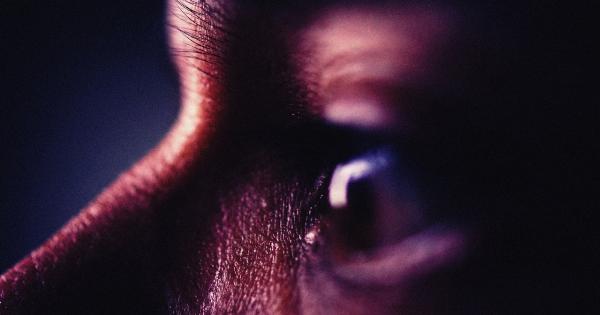Our sense of smell is one of the most powerful and complex senses we possess. It allows us to detect and identify a wide range of odors, from the pleasant scent of flowers to the unpleasant stench of rotting food.
But have you ever wondered just how many odors our noses are capable of detecting? In this article, we will explore the fascinating world of olfaction and delve into the limits of our sense of smell.
How the Sense of Smell Works
Before we dive into the number of odors we can detect, it’s important to understand the basics of how our sense of smell works.
Our sense of smell is closely tied to our olfactory system, which includes the olfactory epithelium located high up in the nasal cavity. This epithelium contains millions of olfactory receptor neurons, each equipped with specialized receptor proteins.
When we encounter an odorant, the volatile molecules that make up the scent bind to these receptor proteins, triggering an electrical signal that is sent to the brain.
The brain then interprets this sensory input and allows us to perceive and identify the smell. It’s worth noting that our olfactory receptors are highly specific to certain molecules, which is why we can differentiate between different odors.
The Number of Odors We Can Perceive
The question of how many odors we can detect is a complex one. The prevailing belief for many years was that humans could only distinguish between around 10,000 different odors.
However, recent scientific research challenges this notion and suggests that our sense of smell is actually far more powerful than previously thought.
A study published in the journal Science in 2014 found that humans can potentially discriminate between over one trillion different odors.
The researchers used a combination of mathematical modeling and psychophysics to estimate the upper limit of our olfactory discrimination. Their findings indicated that our olfactory system is capable of discerning an incredibly large number of smells.
The Complexity of Odor Perception
While the aforementioned study showcased the vast range of smells we can potentially perceive, it’s important to note that our ability to differentiate between odors is not always straightforward.
Our perception of smell can be influenced by various factors, including personal experiences, cultural differences, and even genetic variations.
For instance, certain individuals may have a heightened sensitivity to specific odors due to genetic variations in their olfactory receptor genes. This can result in a more refined ability to detect and identify certain smells.
On the other hand, some individuals may have a reduced sense of smell, a condition known as hyposmia or anosmia.
The Role of Memory and Emotion
Our sense of smell is closely intertwined with our memory and emotions. Certain smells can evoke powerful memories or trigger emotional responses, often without us even realizing it.
The link between smell and memory is thought to be due to the anatomical connection between the olfactory system and the limbic system, which plays a key role in memory and emotions.
Research has shown that smells have the ability to trigger vivid recollections of past events or experiences.
This phenomenon is known as the Proustian memory effect, named after the French author Marcel Proust, who famously described how the smell of a madeleine cake brought back a flood of childhood memories.
Training and Expertise in Smell
While our sense of smell is impressive, it can also be improved through training and expertise.
Certain individuals, such as perfumers and sommeliers, undergo extensive training to develop their olfactory skills and refine their ability to detect and identify a wide range of smells.
For example, perfumers are trained to discern the individual notes that make up complex fragrances, allowing them to create intricate and harmonious blends.
Similarly, sommeliers rely on their sense of smell to differentiate between different wine aromas and assess the quality of a wine.
The Impact of Age and Health
Our sense of smell can also be influenced by age and health. As we age, our olfactory function tends to decline, and we may lose the ability to detect certain smells or perceive them as more muted.
This deterioration in olfactory function is thought to be primarily due to age-related changes in the olfactory epithelium and a decrease in the number of olfactory receptor neurons.
In addition to age, certain health conditions and medications can also affect our sense of smell. For example, nasal congestion or sinus issues can impair our ability to smell, as they limit the access of odor molecules to the olfactory receptors.
Similarly, some medications, such as anti-allergy drugs or chemotherapy treatments, can temporarily alter our sense of smell.
Animals with Superior Olfactory Abilities
While humans have an impressive sense of smell, there are many animals in the animal kingdom that surpass us in olfactory abilities.
For instance, dogs are renowned for their exceptional sense of smell and are often used for tasks like detecting drugs, explosives, or even diseases such as cancer.
Bloodhounds, in particular, have an incredibly keen sense of smell and can track scents over vast distances. In fact, their olfactory abilities are estimated to be at least a million times more sensitive than those of humans.
Other animals with remarkable olfactory abilities include rats, elephants, and certain species of moths.
Conclusion
Our sense of smell is a remarkable and intricate sense that allows us to perceive and identify a vast array of odors.
While the exact number of odors we can detect remains a topic of scientific debate, it’s clear that our olfactory system is capable of discriminating between an immense number of smells.
Our ability to detect and identify odors can be influenced by various factors, such as genetics, personal experiences, and training.
It’s also important to recognize that our sense of smell can change with age and be affected by certain health conditions or medications.
As we continue to unravel the mysteries of olfaction, it’s clear that our sense of smell plays a significant role in our daily lives, from influencing our memories and emotions to helping us navigate and interpret the world around us.
























